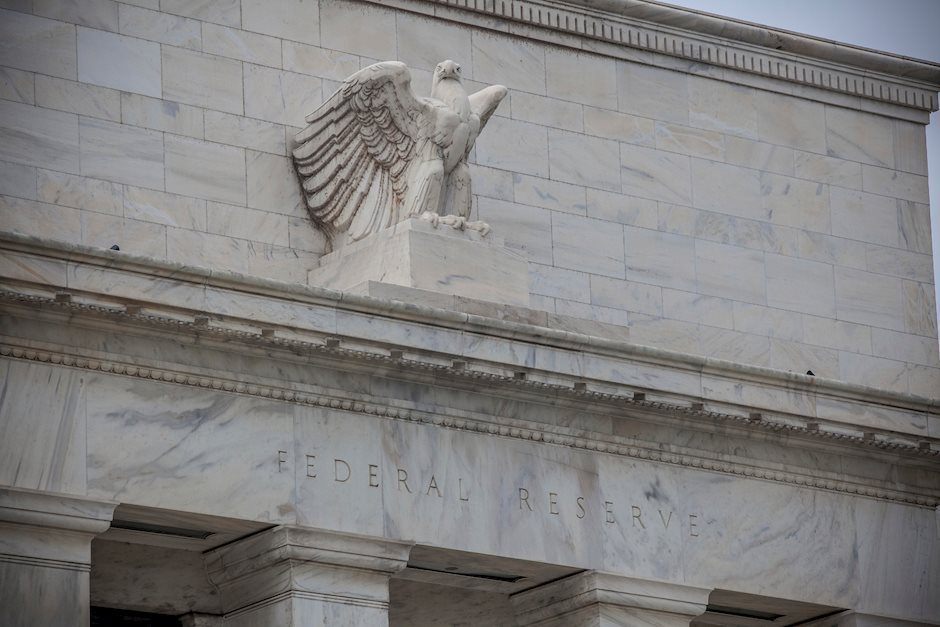Fed’s crypto plans may turn Bitcoin bulls into Gold bugs

The globalist push for central bank digital currency is ramping up.
On Monday, Federal Reserve Chairman Jerome Powell spoke at a virtual "Innovation Summit" hosted by the Bank for International Settlements, the central bank for central banks around the world.
Powell aimed his remarks specifically at digital currencies. And he made it clear that Bitcoinand other privately circulating crypto coins should not be allowed to supplant government-controlled fiat notes.
Clearly, Bitcoin’s recent surge to a market capitalization of $1 trillion set off alarms within the global central banking cabal. The prospect of cryptocurrencies becoming widely used in commerce and trade poses an existential threat to the world monetary order.
Powell derided cryptocurrencies: “They’re highly volatile and therefore not really useful stores of value, and they’re not backed by anything.”
Some sound money advocates would actually agree with those criticisms. But considering the source – a man who has digitally printed trillions of currency units “not backed by anything” and vowed to make them less valuable over time via inflation – they come off as disingenuous.
Powell said of Bitcoin, “It’s more a speculative asset that’s essentially a substitute for gold rather than for the dollar.”
Here Powell gets things totally wrong.
The Fed chairman either has no clue about gold’s properties as a hard monetary asset, in contradistinction to both digital and fiat currencies, and no clue about why so many people have flocked out of dollars and into Bitcoin – or he is flat-out lying. (Hint: Powell’s lying.)
Bitcoin enthusiasts intend to substitute Bitcoin for the U.S. dollar and other national currencies – not for gold. A digital asset could not possibly substitute for gold or any other tangible asset that is valued for its unique physical properties.
Although some Bitcoiners tout the cryptocurrency as “digital gold” and liken the mining of coins on the blockchain to the actual mining of physical metal, these are mere analogies.
There is no actual product of Bitcoin mining other than computer code.
Likewise, there is nothing behind Federal Reserve Notes other than digits (and a little government force).
Both fiat currencies and privately “mined” digital currencies are competing in the same space for preeminence. By contrast, physical precious metals are an entirely separate asset class.
Gold and silver bullion coins, bars, and rounds aren’t tokens meant to represent claims on wealth; they are actual wealth. They aren't reliant on electricity, the Internet, or government force... they are payment unto themselves and carry no counterparty risk.
Apart from serving as money, they could be melted down and directly repurposed into jewelry, industrial components, or other valuable goods.
Both fiat dollars and cryptocurrencies are useless apart from their ability to be exchanged for real things. And that ability depends entirely on confidence that can erode or disappear over time.
The Fed wants to retain a monopoly on this con game while also expanding its reach in the digital age. Digital currencies aren’t going away, so rather than try to stop them, central bankers are looking to co-opt them.
Powell and his colleagues at the Bank for International Settlements are telegraphing a Great Reset of the global monetary system.
The last major reset occurred in 1971, when the U.S. fully severed the link between the dollar and gold redeemability. The transformation that’s underway will usher in a digital dollar ("Fedcoin"), perhaps in coordination with an International Monetary Fund currency issuance, and phase out physical cash.
Central bankers aim to get out in front of privately issued “stable coins” that aim to solve the problem of Bitcoin volatility. As Powell put it, “Private stable coins are not going to be an appropriate substitute for a sound monetary system based in central bank money.”
Of course, it’s not sound money Powell is shooting for. He has no intention of introducing a gold-backed or inflation-resistant digital currency.
What Powell has in mind is a centrally controlled digital currency whose value can be arbitrarily manipulated – and even set to accrue negative rates of interest.
Although rising bond yields has been a major theme so far in 2021, the Fed’s short-term rate remains near zero.
Effectively, the central bank is only one additional rate cut away from imposing a negative (penalty) yield on cash holdings.
Paper cash at least has the virtue of being worth its face value. A digital dollar could lose both real value and nominal (face) value.
Keith Weiner, founder of the Gold Standard Institute, predicted in his recent article "The Fedcoin Is Coming" that “Fedcoin would be programmed to erode at a rate to match the Fed’s negative interest rates…They will have you totally trapped.”
He continued, “Even cash will become entirely electronic, and subject to slow confiscation.
Not by inflation. But by negative interest rates that reduce the account balance.”
For now, inflation – the steady erosion of the purchasing power of dollar holdings – is a much more immediate danger than negative rates. But a move to a digital dollar would enable both processes to extract real wealth from holders simultaneously.
While privately issued cryptocurrencies could be viable alternatives, they could also suffer severe losses if speculators begin to look elsewhere or if governments regulate them out of existence except as black-market vehicles that above-board businesses won’t touch.
To receive free commentary and analysis on the gold and silver markets, click here to be added to the Money Metals news service.
Author

Stefan Gleason
Money Metals Exchange
Stefan Gleason is President of Money Metals Exchange, the national precious metals company named 2015 “Dealer of the Year” in the United States by an independent global ratings group.

















